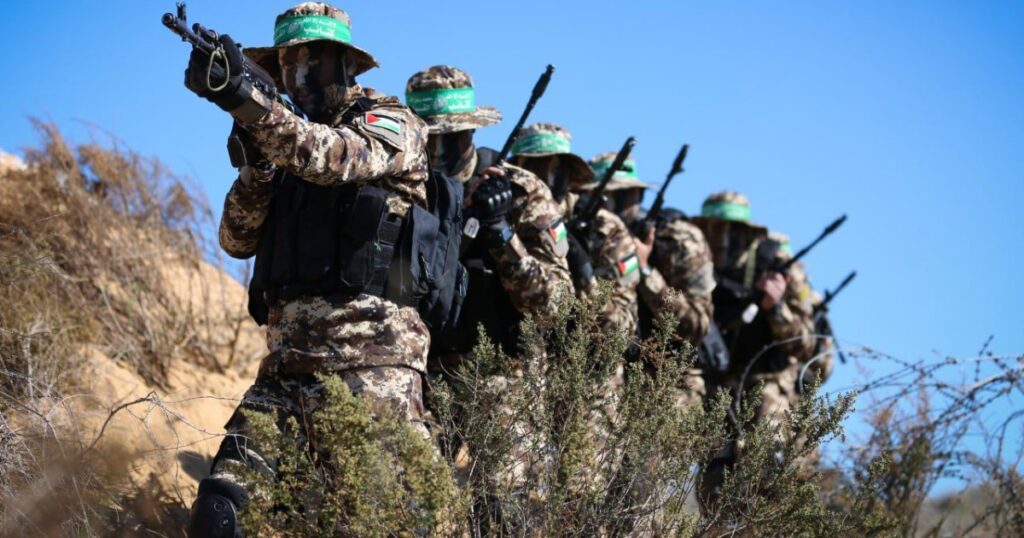The American magazine Foreign Affairs published an article saying that Israel, after 9 months of its air and ground war in Gaza, has not defeated the Islamic Resistance Movement (Hamas), nor is it on the verge of defeating it. On the contrary, Hamas has become stronger than it was. Before the Al-Aqsa flood attack.
The article, written by Robert Pabb, an American political scientist who lectures on national and international security affairs, explained that the main flaw in Israel’s strategy is not a failure of tactics or the imposition of political and moral restrictions on military force, but rather a comprehensive and blatant failure to understand the sources of Hamas’ power.
He considered that Israel failed, to its great detriment, to realize that the massacre and destruction it unleashed in Gaza only led to an increase in the strength of the Hamas movement.
The death toll fallacy
The writer pointed out that for several months, governments and analysts focused on the number of Hamas fighters killed by the Israeli army as if this statistic was the most important measure of the success of the Israeli campaign against the movement.
He added that Israel says that 14,000 out of 30,000 to 40,000 Hamas fighters before the war were killed, and mentioned that the movement says it lost only between 6,000 and 8,000 fighters. He quoted American intelligence sources as saying that the real number of Hamas dead was about 10. Thousands.
However, Pape says that focusing on these numbers makes it difficult to assess the strength of Hamas, and explained that the movement, despite its losses, still controls large areas of Gaza, including the areas where civilians in the Strip are now concentrated, and also enjoys support. Massive loss of Gaza’s population, allowing its fighters to obtain humanitarian supplies and easily return to areas previously “cleared” by Israeli forces.
He pointed out that a recent Israeli assessment confirmed that Hamas now has a larger number of fighters in the northern areas of Gaza than in Rafah in the south.
Guerrilla war
The writer continues his assessment to say that Hamas is currently waging a guerrilla war, which includes ambushes and hand-made bombs (often made from unexploded ordnance or weapons belonging to the Israeli army), and this war may last, at least until the end of 2024.
Hamas, Pape asserts, can still strike Israel, and more than 80% of its network of underground tunnels is still usable for planning and storing weapons, evading Israeli surveillance, and for seizures and attacks. Most of Hamas’s senior leadership in Gaza remains intact. In short, the rapid Israeli offensive in the fall gave way to a grinding war of attrition that would leave Hamas with the ability to attack Israeli civilians, even if the IDF continued its campaign in southern Gaza.
Sources of strength
The American political scientist explains that the strength of a movement like Hamas does not come from the typical material factors that analysts use to judge the strength of states, such as the size of the economy, the technological development of the armies, the amount of foreign support it enjoys, and the strength of the educational systems. Rather, the most important source of these movements is the ability to On recruitment, especially its ability to attract new generations of fighters and operatives who carry out deadly campaigns and are willing to die for the cause. This ability to recruit is rooted, ultimately, in one factor: the volume and intensity of support the group derives from its community.
The writer provided many details about professional polls and surveys that confirm the support of the Palestinian community in Gaza and the West Bank for Hamas and the increase of this support over the days, describing this support as very high.
He said that Hamas currently enjoys great popular support around it, which helps explain the failure of Gazans to provide more intelligence information to Israeli forces about the whereabouts of the movement’s leaders and Israeli hostages.
All Palestinian society
The writer believes that support for armed attacks against Israeli civilians has risen in particular among Palestinians in the West Bank, and is now on par with the consistently high levels of support for these attacks in Gaza, indicating that Hamas has made widespread gains in Palestinian society since October 7. /October.
He pointed out that the terrible Israeli punishment of the residents of Gaza did not have a significant deterrent effect among them, but rather failed to limit their support for armed attacks against Israeli civilians and their support for Hamas, as he put it.
Pep said that the time has come, after 9 months of arduous war, to acknowledge the stark reality: the military method alone will not defeat Hamas, as it is more than the sum of the current number of fighters, and it is also more than just an evocative idea. Hamas is a political and social movement that is not on the verge of defeat, and will not disappear any time soon. Its cause is more popular and its appeal is stronger than it was before October 7. Its fighters will continue to flow in and participate in the fighting in greater numbers, and its threat to Israel will increase.

